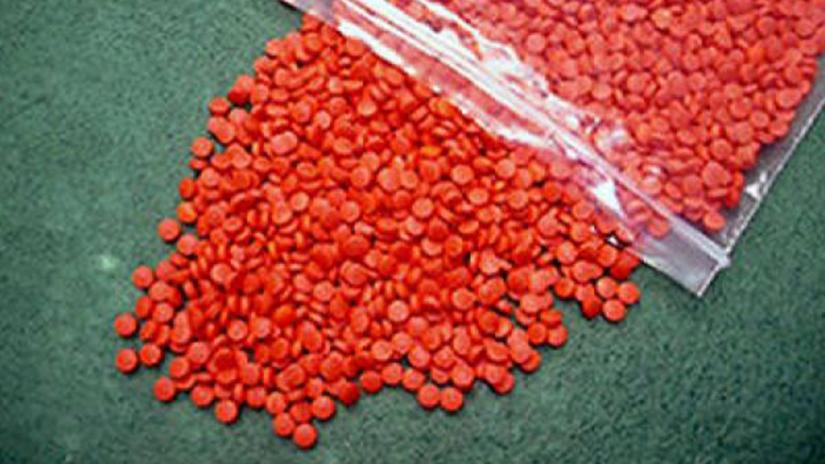 Behind every red or pink pill that lands in the hands of an addict in Dhaka, there is a perilous journey behind it.
Behind every red or pink pill that lands in the hands of an addict in Dhaka, there is a perilous journey behind it.
It all begins in the mountainous jungles of Myanmar, where yaba is produced—on an industrial scale—for a booming market in Bangladesh, India, parts of China, and Thailand.
It is widely believed that the colossal trade that involves billions of US dollars, is patronized by none other than the Burmese military.
According to witnesses and yaba traders, the Myanmar armed forces facilitate smugglers across the borders with consignments of the highly addictive mixture of methamphetamine and caffeine.
Ali Mia, a fisherman from Teknaf worked as a mule in the yaba trade for 10 years.
His work was simple: to go to a designated location across the Naf River in Myanmar with his fishing boat and pick up the "parcel" to be delivered to someone in Teknaf.
“While carrying out the cross-border delivery, I witnessed Burmese border guards help moor my boat to the official jetty and hide the parcel inside the boat, many times,” Ali recounted.
The second stage of smuggling was completed with Ali delivering the parcel to its recipient in Teknaf.
To avoid detection, the Bangladeshi recipient uses a Myanmar Posts and Telecommunication (MPT) SIM card. Across the border, the sender communicates via Bangladeshi cell phone carriers Robi or Grameenphone.
All three services are operational in the border areas.
However, with the Border Guards Bangladesh (BGB) manning numerous checkpoints on the highways to prevent smuggling and intercept fleeing Rohingya refugees, yaba traders have evolved their own innovative ways to pass through.
To the surprise of the Bangladeshi law enforcement, recently, hundreds of thousands of pills were discovered in fake gas cylinders on their way to the major cities of Bangladesh.
Moreover, according to BGB sources, yaba traders are now using the outer bay routes to reach the heart of the market—where an estimated nine million addicts await their arrival.
Once the parcel reaches Dhaka, dozens of young men and women scattered throughout the city, enter the supply chain.
Long-time yaba addict, Mohammad (not his real name), said the entire network of the trade is run on cell phone networks.
“All you need to do is to obtain the mobile number of the supplier—with a reference—and the product is delivered to wherever you want in an hour,” Mohammad explained.
 National
National
40996 hour(s) 56 minute(s) ago ;
Evening 11:50 ; Friday ; Jun 20, 2025
Red pill: The odyssey of yaba from Myanmar to Bangladesh
Send
Morshed Ali Khan
Published : 04:30, May 18, 2019 | Updated : 04:30, May 18, 2019
Published : 04:30, May 18, 2019 | Updated : 04:30, May 18, 2019
0 ...0 ...
/pdn/
Topics: Top Stories
- KOICA donates medical supplies to BSMMU
- 5 more flights to take back British nationals to London
- Covid19: Rajarbagh, Mohammadpur worst affected
- Momen joins UN solidarity song over COVID-19 combat
- Covid-19: OIC to hold special meeting
- WFP begins food distribution in Cox’s Bazar
- WFP begins food distribution in Cox’s Bazar
- 290 return home to Australia
- Third charter flight for US citizens to return home
- Dhaka proposes to postpone D8 Summit
Unauthorized use of news, image, information, etc published by Bangla Tribune is punishable by copyright law. Appropriate legal steps will be taken by the management against any person or body that infringes those laws.
Bangla Tribune is one of the most revered online newspapers in Bangladesh, due to its reputation of neutral coverage and incisive analysis.
F R Tower, 8/C Panthapath, Shukrabad, Dhaka-1207 | Phone: 58151324; 58151326, Fax: 58151329 | Mob: 01730794527, 01730794528


